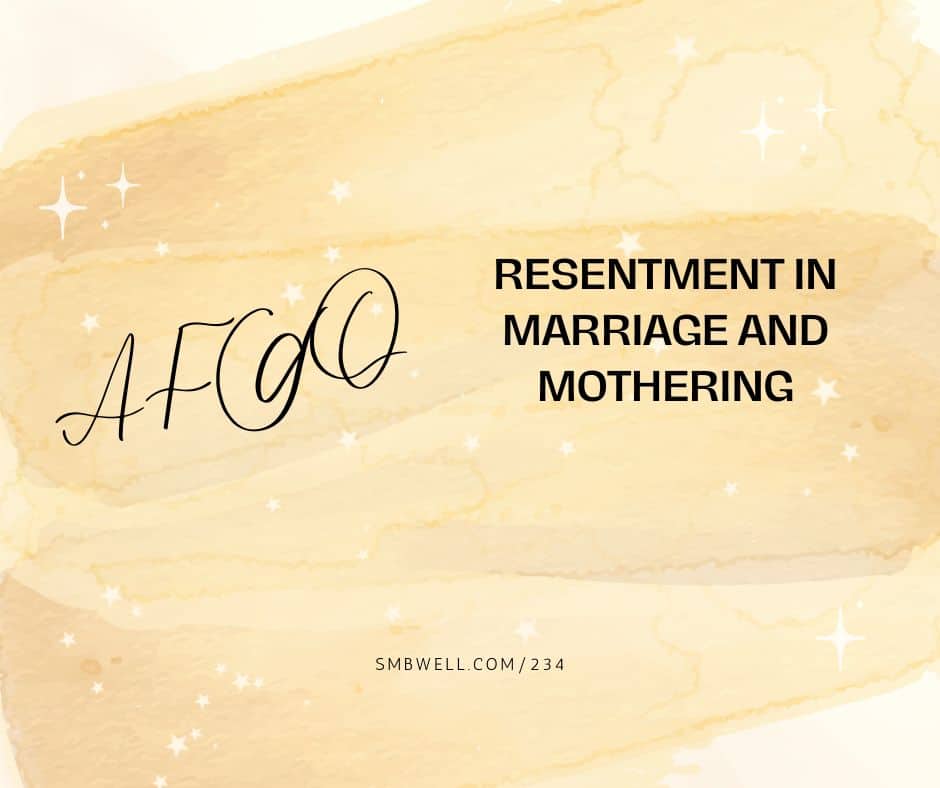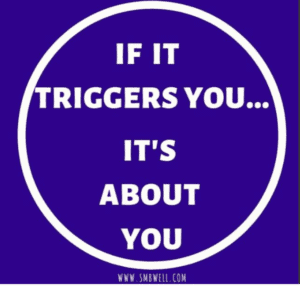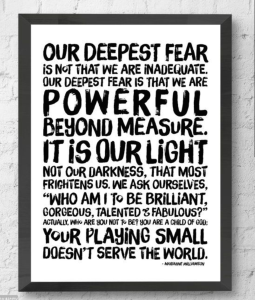Podcast: Play in new window | Download
Subscribe: Apple Podcasts | Spotify | Amazon Music | RSS | More
Resentment in Marriage and Motherhood
Have you ever felt resentment in marriage or motherhood? If not, keep reading as you clearly are a unique individual and it will be helpful for you to understand what many others are feeling in relationships. Resentment.
Resentment is defined as bitter indignation at being treated unfairly. It usually comes from our expectations not being met. What I have discovered is it’s usually that those expectations have never been said aloud. All of these factors combine to give us a recipe for success if we are aiming to feel resentment in marriage or motherhood.
Resentment is a Problem Solving Emotion
As we learned from the definition, resentment feels like extreme irritation. That is not a feeling state I strive for in any of my relationships, certainly not in marriage or motherhood.
Further, if left unaddressed, resentment leads to burn out, apathy, and disconnection. It can also lead to rage, reactivity and intense irritation. None of those feeling states are usually sought after by my Love Your Life Show listeners! Therefore, let’s learn these ways to combat the feeling of resentment in marriage and parenting.
Mindset Shift for Resentment in Marriage
Firstly, one of the most powerful things you can do for yourself and for those you’re in relationship with, is to get a more realistic view of relationships. What would happen if the movies portrayed relationships for what I consider them really to be, containers of growth? I like to refer to moments of conflict or discord in my relationships as AFGOs. Essentially, opportunities for growth.
If we approached relationships as a way we can learn more about ourselves and as a platform to press us into our next best selves, we would feel a lot less resentment in marriage.
So you want to grow? Get married? Become a parent. In other words, choose to be in relationship with someone else with the understanding that by opening ourselves up we will expose our limitations. We will have opportunities to grow. Further, when we shift to view relationships from a way to feel good and complete ourselves (a confidence buster) to a way to learn more about ourselves, we relieve a lot of stress. Expecting that we will be triggered. Even more, knowing that we will have our buttons pushed and nothing has gone wrong. That this is all part of human development!
What if we were taught that our resentment is a lesson to see where we can speak up for ourselves?
Resentment in Marriage can be Situational
Furthermore, when we shift to view relationships as containers for growth, we can see how a lot of our resentment in marriage is situational. That is to say that sometimes our feeling of resentment comes from a feeling like “this isn’t what I thought it would be like”. This isn’t what I though marriage or motherhood or my first job or college or fill in the blank would feel like. Our expectation is one thing and the reality is different.

Do you remember the definition of resentment – unmet expectations? I had the expectation that mothering would feel and be a certain way and when it wasn’t, my brain was confused. It was like, wait a minute, I thought this was going to feel differently! In my emotional immaturity, I took this confusion, and looked around for someone to blame, preferably not that person in the mirror. Instead of recognizing it was the situation, my brain searched for an easier target. Insert breeding ground for resentment in marriage and parenting.
Conditioning Doesn’t Help
Instead of looking at situation and where I had needs and speaking up for those needs, my conditioning led me to do two things: first, internalize, and think I was the problem. So I tried to fix it all. To do it all. Yet, guess what, that got to be more than my human self could carry. So, I looked around for someone else I could blame and for me, that was my first husband. Other mom’s brains in same situation may blame their child. This is normal. Shaming ourselves for our human reaction is not needed. And, now that we know better, we can do better.
When we become aware of this tendency, or habit of thinking and feeling, we have the opportunity to change. Congratulations, better feeling states ahead!
Step One: Decide and Choose Redirecting Thought
Literally, draw a line in the sand with yourself that when resentment comes up you’re not going to sit in the resentment pool anymore. Choose to be done. Decide that you’re not going to call a girlfriend and get reinforcement for your problem causing emotion. Decide to stop listening to the resentment generating thoughts anymore.
Choose a redirecting thought. Some that I mentioned on the show that work for me are:
- What is resentment here to teach me?
- Where are my needs not being met?
- How can I speak up for myself?
Step Two: Detective Time. What do you need?
Secondly, figure out what you need. What is resentment here to teach you? Instead of participating in conversations with others that promote this selfless, don’t speak up for yourself mentality, we choose to take action. Choose to see what you’re resentful about in the situation and what request can you make? This step is a mixture of self responsibility and love.
As a younger mom, I’d feel resentful because of this vague sense that I wanted to be treated differently. However, when I stopped to think about how I wanted to be treated differently, I couldn’t verbalize what that looked like. I wanted to be appreciated and valued yet wasn’t sure what that looked like. Consequently I’d feel resentment because my husband wasn’t valuing me but I wasn’t valuing me. I wasn’t slowing down to see what I needed and expecting him to figure it out instead.
My brain was like” Why don’t you know what I want even though I don’t know what I want?”
Our time to figure out what we want is now. I encourage all of us to become students of us and begin to discover our wants, desires, and needs. We get to stop adding to the conversation that selfless-ness is a goal or that it serves anyone. It doesn’t. You are a child of the universe. Your needs and desires are here for a reason. When we put them on the back burner or tell ourselves they don’t matter, resentment begins to build.
So today dear warriors, lets pour love on ourselves. On our needs and our desires. To remember we matter. This is our moment of power: when we feel burnout, apathetic, resentful. Instead of looking for someone to blame or looking to shame ourselves, please turn towards it as a learning opportunity.








